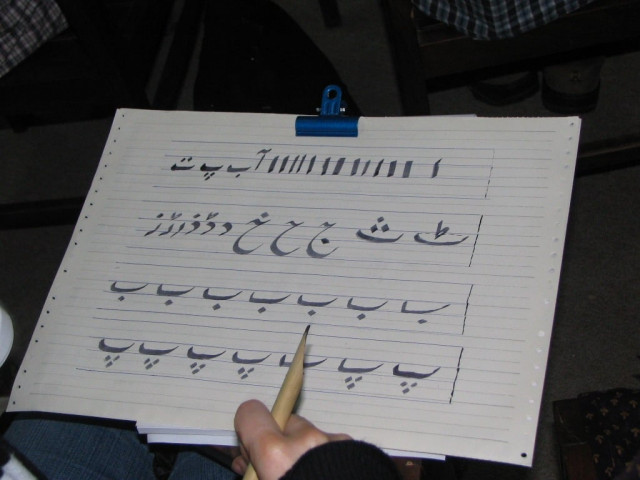Epic tragedies: Greek trilogy translated in Urdu
Famed works of Aeschylus, Sophocles, Euripides included.

Greek trilogy translated in Urdu. PHOTO: FILE
When will the suffering end, when will the time arrive for an antidote to sorrow, said Prometheus, chained to a rock where an eagle would eat his liver every day.
The mythical ancient Greek hero was punished by the gods after he stole fire from them and gave it to humanity. Now the legend can be read in Urdu too.
Intellectual and writer Ashfaq Saleem Mirza on Thursday launched his new book entitled “The Journey of Tragedy” comprising Urdu translations of three representative Greek tragedies — ‘Prometheus Bound’ by Aeschylus, ‘Oedipus Rex’ by Sophocles and ‘The Trojan Women’ by Euripides. The book’s launching ceremony was organised by the Islamabad Cultural Forum at the Pakistan Academy of Letters.
The three plays are dated around the fifth century BC.
Poet and columnist Mushir Anwar chairing the ceremony said Mirza has shown immense skill in translating the plays. “These texts were nonexistent in Urdu.”
Writer Iqbal Afaqi, the chief guest, said he was grateful to Mirza for translating the plays, especially Euripides’s ‘The Trojan Women’. Afaqi said the play presents a narrative of emancipation and a story of oppression which is relatable to human societies even 2,500 years after the play was staged. He said The Trojan Women was an example of the way Greeks, perhaps unlike any other culture, included self-criticism and the version of the “other” in their texts.
Speakers said Mirza was able to accurately translate the depth and grandness of the Greek tragedies.
Short story writer Ali Akbar Natiq said Mirza’s translations reflected the translator’s own creative skill in addition to displaying the original writer’s craft. Writer Salahuddin Darwesh appreciated the translations for their flow and easy-to-read qualities.
Mirza who has previously authored five books, said the latest one may appear to be a collection of translations, but for him, it was an exercise in experiencing how it might have felt to live in the ancient Greece — a feeling he compared with a Sufi’s trance, which is “momentous” but difficult to communicate.
The ancient Greek playwrights, especially Euripides showed remarkable insight and astuteness about the human condition in their writings which have made their works everlasting, he said. Speakers requested the translator to include historical background and philosophical analysis of the three plays in the next edition of the book.
Published in The Express Tribune, January 3rd, 2014.

















COMMENTS
Comments are moderated and generally will be posted if they are on-topic and not abusive.
For more information, please see our Comments FAQ